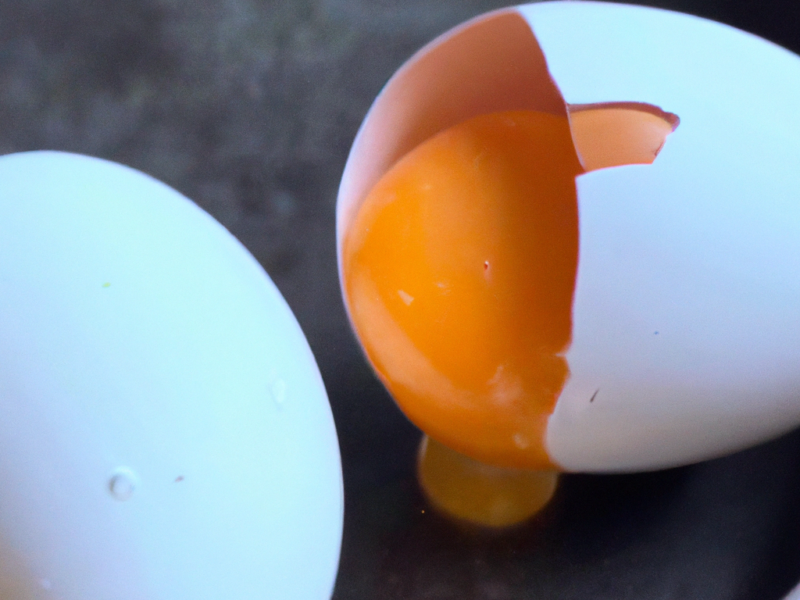Boiling eggs may seem like a simple task, but achieving the perfect boiled egg can be a challenge for many. Whether you’re making hard-boiled eggs for a salad or soft-boiled eggs for breakfast, there are a few key tips and tricks that can help you achieve the perfect result every time. In this ultimate guide to Boiling eggs, we will explore the different methods and techniques for Boiling eggs and provide you with the knowledge and skills to master this basic cooking skill.
The Ultimate Guide to Boiling Eggs: Tips and Tricks for Perfect Results
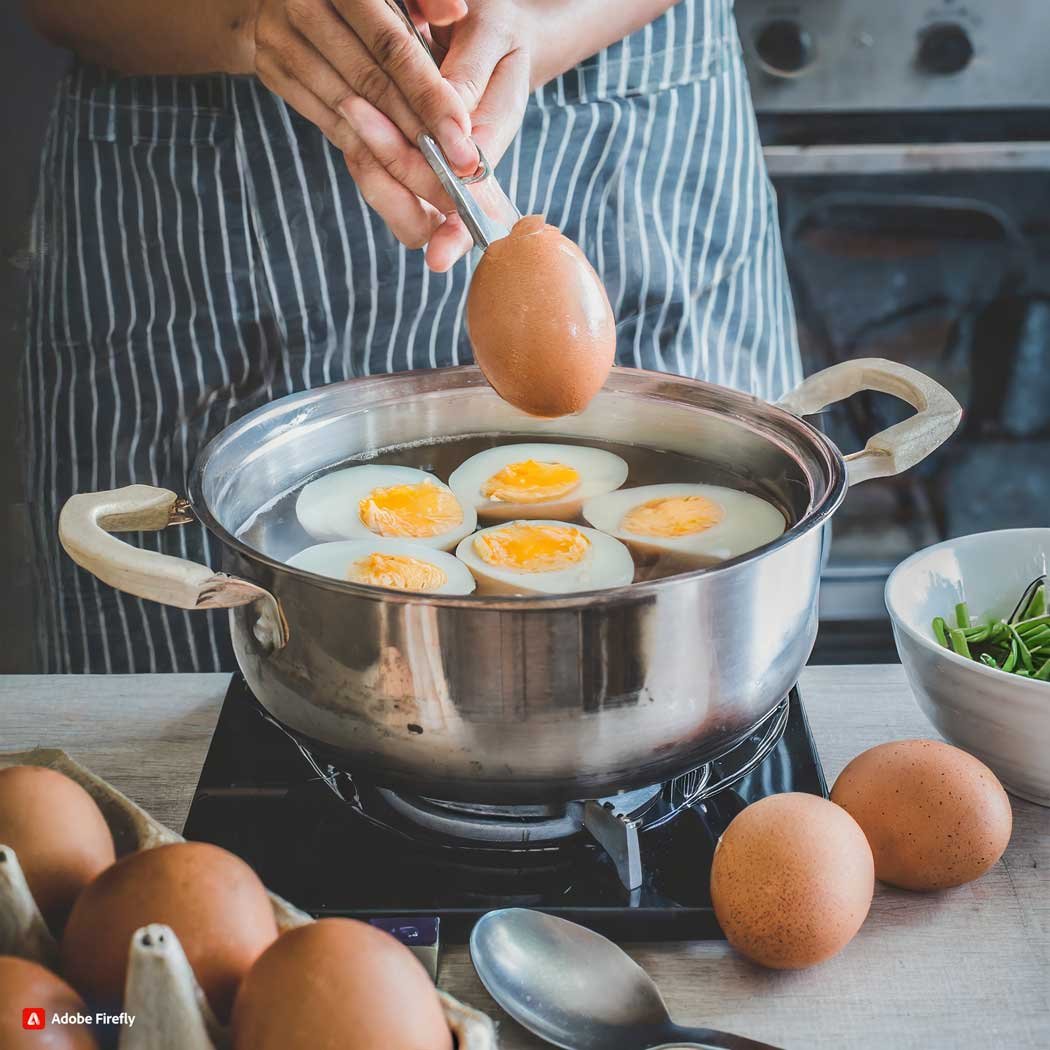
First and foremost, it’s important to start with the right type of eggs. Fresh eggs are always the best choice for boiling as they have a firmer white and a more centered yolk, making them easier to peel. If possible, try to use eggs that are at least a week old. This will allow the air pocket at the bottom of the egg to expand, making it easier to peel. Additionally, make sure to use eggs that are at room temperature. Cold eggs can cause the shells to crack when placed in boiling water.
Now, let’s move on to the actual boiling process. There are two main methods for Boiling eggs – the traditional stovetop method and the steam method. The traditional stovetop method involves placing the eggs in a pot of cold water and bringing it to a boil, while the steam method involves using a steamer basket or rack to cook the eggs over boiling water. Both methods have their advantages, so it’s important to choose the one that works best for you.
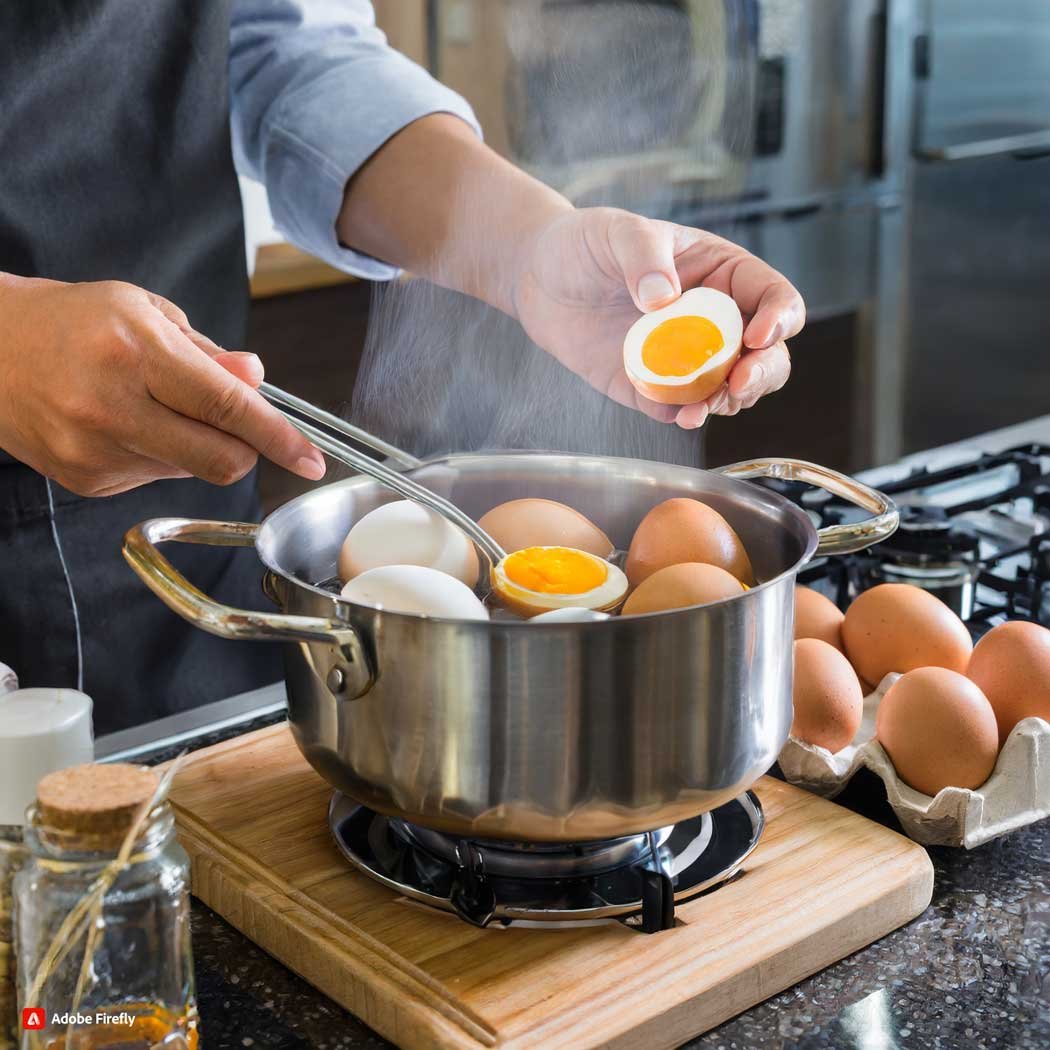
If you’re using the stovetop method, start by placing the eggs in a pot and covering them with cold water. Make sure the water is at least an inch above the eggs. Then, bring the water to a rolling boil over high heat. Once the water is boiling, reduce the heat to medium-low and let the eggs simmer for the desired time. For soft-boiled eggs, let them cook for 3-4 minutes, and for hard-boiled eggs, let them cook for 8-10 minutes. After the desired time, remove the eggs from the pot and place them in a bowl of ice water to stop the cooking process.
If you’re using the steam method, start by bringing a pot of water to a boil. Then, place the eggs in a steamer basket or rack and place it over the boiling water. Cover the pot and let the eggs steam for the desired time. For soft-boiled eggs, let them cook for 6-7 minutes, and for hard-boiled eggs, let them cook for 12-14 minutes. Once done, remove the eggs from the steamer and place them in a bowl of ice water.
Now comes the crucial step – peeling the eggs. This can be a frustrating task, but with the right technique, it can be a breeze. Start by tapping the egg gently on a hard surface to crack the shell. Then, roll the egg between your hands to loosen the shell. Finally, peel the shell under running water to help remove any remaining bits of shell. Read Bread Recipes.
In addition to the traditional methods, there are a few other tips and tricks that can help you achieve the perfect boiled egg. Adding a teaspoon of vinegar to the water can help prevent the eggs from cracking while boiling. You can also add a pinch of salt to the water for easier peeling. And for those who prefer their eggs with a runny yolk, try adding a few drops of lemon juice to the water to help prevent the yolk from solidifying.
In conclusion, Boiling eggs may seem like a simple task, but with the right techniques and tips, you can achieve the perfect boiled egg every time. Remember to start with fresh eggs at room temperature, choose the boiling method that works best for you, and don’t forget the crucial step of peeling the eggs. With these tips and tricks, you’ll be able to impress your friends and family with perfectly boiled eggs every time.
Mastering the Art of Boiling Eggs: Techniques for Different Types of Eggs
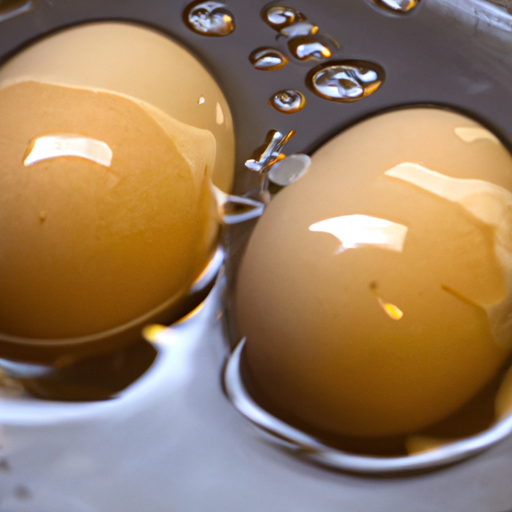
Boiling eggs may seem like a simple task, but achieving the perfect boiled egg can be a challenge. Whether you prefer your eggs soft, medium, or hard-boiled, there are certain techniques that can help you achieve the desired result. In this article, we will discuss the different types of eggs and the techniques for boiling them perfectly.
Firstly, let’s talk about the most common type of egg – chicken eggs. When boiling chicken eggs, it is important to start with room temperature eggs. This will prevent the eggs from cracking when placed in boiling water. Place the eggs in a pot and cover them with cold water. Make sure the water level is at least an inch above the eggs. Adding a pinch of salt to the water can help prevent the eggs from cracking as well.
Next, bring the water to a rolling boil over high heat. Once the water is boiling, reduce the heat to medium and let the eggs cook for the desired time. For soft-boiled eggs, cook for 3-4 minutes, for medium-boiled eggs, cook for 6-7 minutes, and for hard-boiled eggs, cook for 10-12 minutes. It is important to keep an eye on the eggs and not overcook them, as this can result in a rubbery texture.
After the eggs are done cooking, immediately remove them from the hot water and place them in a bowl of ice water. This will stop the cooking process and make it easier to peel the eggs. Let the eggs sit in the ice water for a few minutes before peeling them.
Now, let’s move on to a more delicate type of egg – quail eggs. Quail eggs are smaller in size and require a shorter cooking time compared to chicken eggs. To boil quail eggs, follow the same steps as boiling chicken eggs, but reduce the cooking time by 1-2 minutes. Quail eggs are perfect for appetizers or as a topping for salads. Read Lunch for Weight Loss.
Another type of egg that requires a different boiling technique is duck eggs. Duck eggs have a thicker shell and a larger yolk compared to chicken eggs. To boil duck eggs, start with room temperature eggs and place them in a pot of cold water. Bring the water to a boil and then reduce the heat to medium. Cook the eggs for 8-10 minutes for soft-boiled, 12-14 minutes for medium-boiled, and 15-17 minutes for hard-boiled. The longer cooking time is necessary due to the thicker shell and larger yolk.
For those who prefer a runny yolk, poached eggs are a popular choice. To poach an egg, bring a pot of water to a simmer and add a splash of vinegar. Crack the egg into a small bowl and gently slide it into the simmering water. Let the egg cook for 3-4 minutes, then remove it with a slotted spoon. Poached eggs are perfect for topping avocado toast or eggs Benedict.
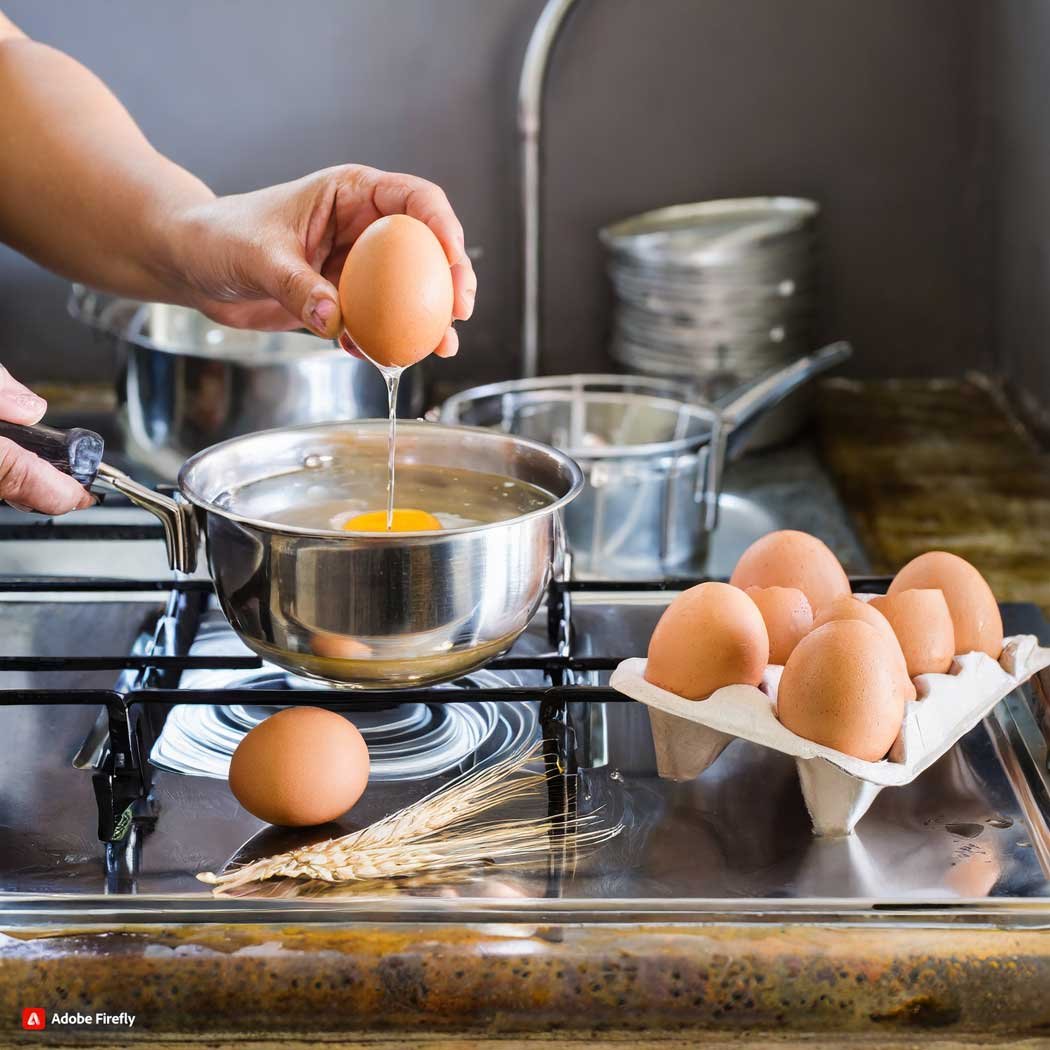
Lastly, let’s talk about the most luxurious type of egg – caviar. Caviar is the salted roe of sturgeon fish and is considered a delicacy. To serve caviar, it is important to keep it chilled at all times. Place the caviar in a bowl of ice and serve it with blinis or toast points. Caviar can also be used as a topping for deviled eggs or added to scrambled eggs for a decadent breakfast.
In conclusion, Boiling eggs may seem like a simple task, but it requires different techniques for different types of eggs. Whether you prefer chicken, quail, duck, poached, or caviar eggs, following these techniques will help you achieve the perfect boiled egg every time. Remember to start with room temperature eggs, use cold water, and keep an eye on the cooking time to avoid overcooking. With these tips, you can now master the art of Boiling eggs and impress your friends and family with perfectly cooked eggs every time.
Egg-cellent Boiling: Common Mistakes to Avoid and How to Fix Them
Boiling eggs may seem like a simple task, but it can be surprisingly tricky to get them just right. Whether you’re making hard-boiled eggs for a salad or soft-boiled eggs for breakfast, there are a few common mistakes that can lead to less-than-perfect results. In this article, we’ll discuss these mistakes and how to avoid them, so you can achieve egg-cellent boiling every time.
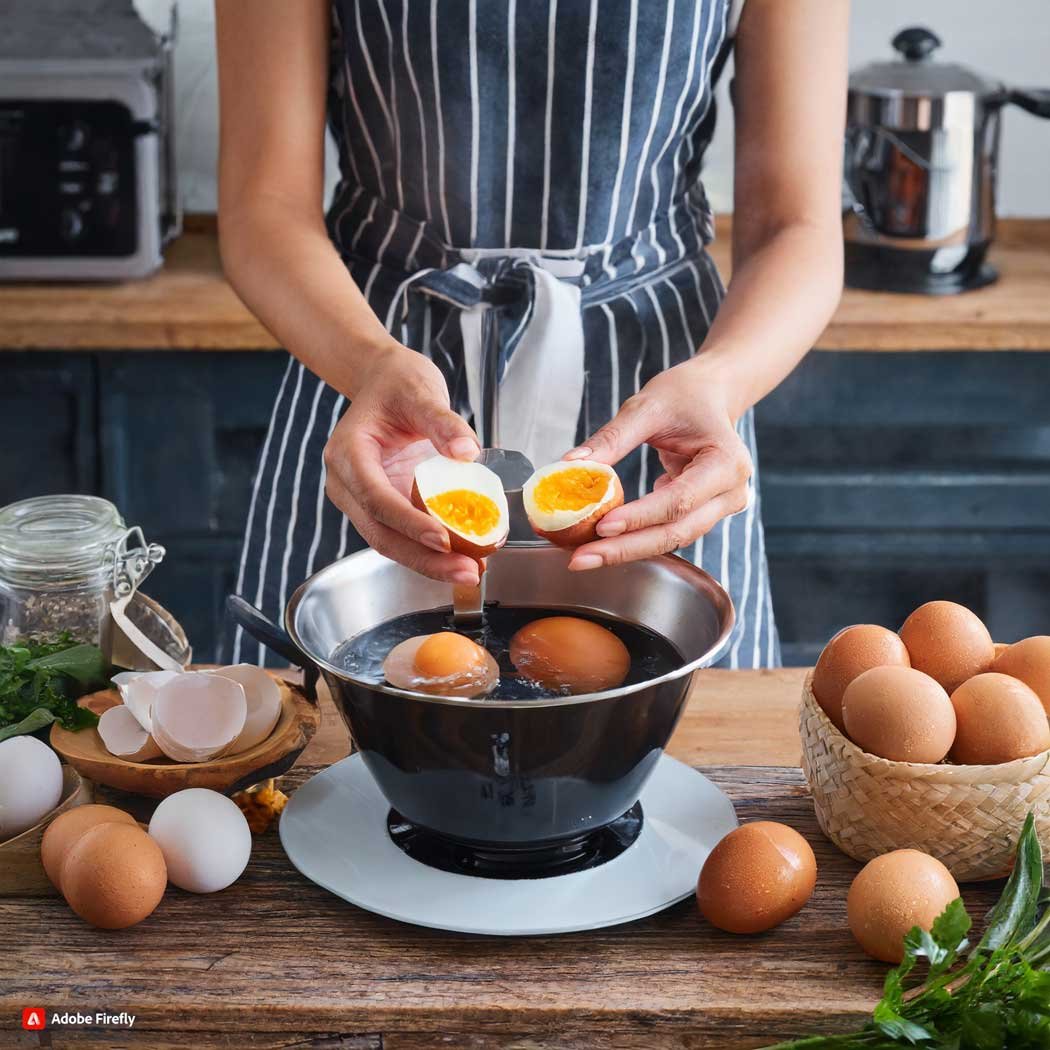
One of the most common mistakes when Boiling eggs is overcooking them. This can result in a rubbery texture and a greenish-gray ring around the yolk. To avoid this, it’s important to keep an eye on the cooking time and not leave the eggs in the boiling water for too long. The exact cooking time will depend on the size of the eggs and how runny you want the yolk to be, but a good rule of thumb is to cook large eggs for 10-12 minutes for hard-boiled and 4-6 minutes for soft-boiled.
Another mistake that can lead to less-than-perfect boiled eggs is not using the right temperature. Many people make the mistake of starting with cold water and bringing it to a boil, but this can result in uneven cooking and cracked shells. The best way to boil eggs is to start with hot water. Place the eggs in a pot and cover them with an inch of water. Then, bring the water to a rolling boil before reducing the heat to a simmer. This will ensure that the eggs cook evenly and the shells stay intact.
Speaking of cracked shells, this is another common mistake when Boiling eggs. Cracked shells can lead to the whites leaking out and a less-than-perfect appearance. To avoid this, it’s important to handle the eggs gently when placing them in the pot and when removing them from the water. You can also add a splash of vinegar to the water, which can help prevent the shells from cracking.
One mistake that many people make when Boiling eggs is not cooling them down properly after cooking. This can result in difficulty peeling the eggs and a less-than-perfect appearance. To cool the eggs down quickly, place them in an ice bath for a few minutes after cooking. This will stop the cooking process and make the eggs easier to peel. If you don’t have ice on hand, you can also run the eggs under cold water for a few minutes.
Another mistake that can lead to less-than-perfect boiled eggs is not using fresh eggs. Older eggs tend to have a larger air pocket, which can make them more difficult to peel and result in an unevenly cooked egg. To ensure the best results, use eggs that are no more than a week old. If you’re not sure how old your eggs are, you can do a simple test. Place the eggs in a bowl of water – if they sink to the bottom, they are fresh. If they float, they are older and may not be the best choice for boiling.
Lastly, one of the most common mistakes when Boiling eggs is not using a timer. It’s easy to get distracted and forget about the eggs on the stove, but this can lead to overcooking or undercooking. To avoid this, set a timer for the appropriate cooking time and make sure to check on the eggs when it goes off.
In conclusion, Boiling eggs may seem like a simple task, but there are a few common mistakes that can lead to less-than-perfect results. By avoiding these mistakes and following the tips mentioned in this article, you can achieve egg-cellent boiling every time. Remember to keep an eye on the cooking time, use hot water, handle the eggs gently, cool them down properly, use fresh eggs, and set a timer. With these tips in mind, you’ll be able to boil perfect eggs every time.
Q&A for Boiling Eggs
1. How long should I boil eggs for to get the perfect consistency?
For hard-boiled eggs, boil for 10-12 minutes. For soft-boiled eggs, boil for 6-7 minutes.
2. Should I add salt to the water when Boiling eggs?
Adding salt to the water can help prevent the eggs from cracking, but it is not necessary for achieving the perfect consistency.
3. How can I easily peel boiled eggs?
To easily peel boiled eggs, place them in an ice bath for a few minutes after boiling. This will cause the eggs to contract, making them easier to peel. You can also roll the eggs gently on a hard surface to crack the shell before peeling.
Conclusion – Boiling Eggs
In conclusion, boiling perfect eggs requires attention to detail and following a few simple steps. Start by placing the eggs in a pot of cold water and bringing it to a boil. Then, reduce the heat and let the eggs simmer for a specific amount of time depending on the desired level of doneness. Finally, immediately transfer the eggs to an ice bath to stop the cooking process and ensure easy peeling. With these tips, anyone can achieve perfectly boiled eggs every time.
Please follow us on linkedin. You can learn all best canadian food recipes you can check our Culinary 1TouchFood Youtube and Telegram 1TouchFood page. Don’t forget Fighting Obesity Magazine and Radio Cooking.

